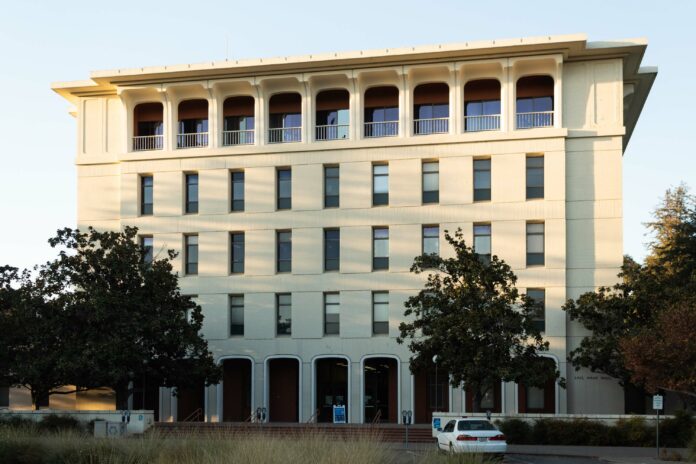Students sued the UC system for charging fees for facilities and services not being rendered due to pandemic closures; the administration offers alternative view
UC students filed a class-action lawsuit in federal court claiming the UC system violated the Takings Clause of the constitution when it accepted fee payments from students intended for on-campus facilities and services which were closed due to the pandemic.
Noel Garcia, an attorney at Cowper Law representing Claire Brandemeyer, the UC Davis student who filed the lawsuit, said students are entitled to recoup almost all of the fees paid in Spring Quarter.
“Students at the UC Davis campus in particular, being on the quarter system, never stepped foot on campus during Spring Quarter of 2020,” Garcia said.
The lawsuit was originally filed to include only spring fees, but Garcia said she hopes they can amend the claim to include current and future fees assessed as pandemic closures continue.
“We would try to add new quarters for the continuing violations of taking fees from the students,” Garcia said. “We would also add new claims in order to get around the motion to dismiss.”
After a hearing on Oct. 5, the Northern California District Court was inclined to dismiss the case, citing sovereign immunity. The UC system claimed that, because it is an arm of the state, it cannot be sued in federal court.
The current campus-based fees are approximately $676, with an additional $376 paid in student services fees per quarter.
Vice Chancellor of Finance, Operations and Administration Kelly Ratliff said that the fees students pay have some malleability in the way that they can be used once allocated to a specific budget.
“Even though the fee was set up with amounts per student per activity or program, there’s a certain amount of flexibility in the language,” Ratliff said.
Kuvin Hayer, a third-year economics major, said he understood why certain services and facilities have closed during the pandemic, but wants answers about how his student fees are being used.
“I just want transparency on what’s actually happening to the fees we’re paying now and where it’s actually going,” Hayer said.
The administration has made an effort to retain as many employees as possible and has kept temporary COVID-19 related layoffs under 30, Ratliff said.
“We’re trying so hard to keep everyone employed,” Ratliff said. “The services, while they’re different, are still being maintained.”
Vice Chancellor of Student Affairs Pablo Reguerin said, as the pandemic continues, many of the services previously provided in-person have moved online in the form of what Student Affairs has coined “Virtual UC Davis.”
“People have had to rethink how we serve students in a very short period of time,” Reguerin said.
Many buildings remain closed on campus, with a few facilities operating at reduced capacity.
“The one that I really miss is the ARC, because I spent probably a good portion of my days there while I was on campus,” Hayer said.
Fees for facilities like the Activities and Recreation Center (ARC) are not solely used for current operations, Ratliff said.
“A lot of that money is used to actually pay for the building,” said Ratliff. “We borrowed money to build it, we still have to make—in essence, the mortgage payment.”
Reguerin seconded this sentiment, adding that the university is “paying that debt service whether someone is swimming there or not.”
The ARC has been re-opened to students starting Nov. 1 for appointment-based usage, Reguerin said, but fluctuating guidelines in Yolo County make the continued operation uncertain.
On Aug. 20, Ratliff and Reguerin issued a joint statement that student fees would not increase; however, both said they did not expect the fees to decrease either.
“I certainly understand the perspective of, ‘Why are the fees staying the same?’ and I know I’m the voice that says, ‘Well, they are and they need to be,’” Ratliff said. “But, I do want folks to know that we take really seriously the stewardship of the funds and that they are student funds.”
The lawsuit headed by Brandemeyer was combined with another lawsuit, Ritter v. Regents of the UC, that included tuition reimbursement. That suit is currently in limbo awaiting a response on whether they can submit an amended complaint.
Brandemeyer did not respond to a request for comment.
Though the future of the suit against the UC system is uncertain, the debate about what students are owed when it relates to fees is ongoing.
“What we really want is an injunction to get the school to stop taking fees from all of you going forward until they can actually provide the services,” Garcia said.
Written by: Kathleen Quinn — campus@theaggie.org



